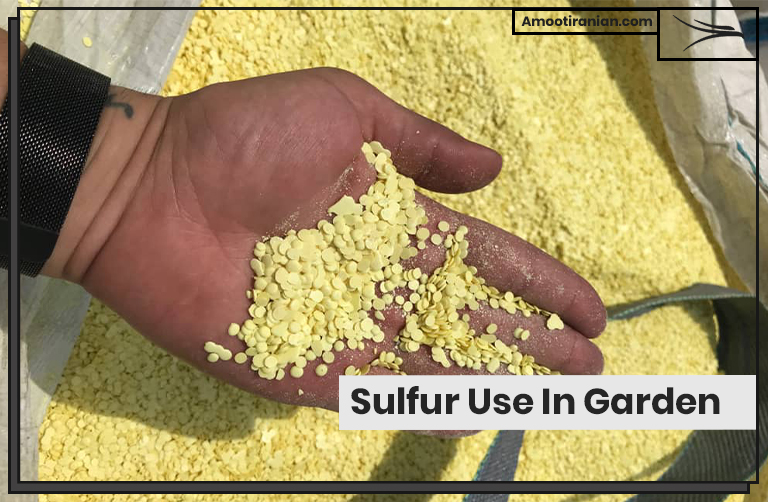.

.
Sulfur is indispensable in gardening for soil pH regulation, plant growing, and disease prevention. It's a natural element found in fertilizers & soil amendments.
.
Why Add Sulphur To Garden?
Adding sulfur to garden soil can lower the pH, making it more acidic and improving plant growth for acid-loving plants like blueberries, azaleas, and rhododendrons.
Sulfur also helps prevent certain soil-borne diseases and aids in the production of chlorophyll.
Additionally, sulfur promotes root development and enhances nutrient uptake by plants.
It can also help improve soil structure and water retention, making it a valuable amendment for sandy soils.
.

.
However, it’s important to use sulfur carefully and in the right amounts, as excessive use can harm beneficial soil organisms and cause toxicity in plants.
.
What Does Sulfur Do For Plants?
.
The key ways sulfur benefits plants
| Benefit | Explanation |
| Essential nutrient | Sulfur is a vital component of amino acids, proteins, and enzymes, which are critical for plant growth and development. |
| Chlorophyll production | Sulfur is necessary for the production of chlorophyll, which allows plants to carry out photosynthesis and produce energy. |
| Disease prevention | Sulfur can help prevent certain fungal and bacterial diseases, such as powdery mildew and black rot. |
| Soil pH regulation | Adding sulfur to soil can lower the pH, making it more acidic and better suited for acid-loving plants like blueberries and azaleas. |
| Root development | Sulfur can promote root growth and development, helping plants to establish themselves more quickly and efficiently. |
| Nutrient uptake | Sulfur helps plants absorb other important nutrients, such as nitrogen and phosphorus, from the soil. |
| Soil structure improvement | Sulfur can improve soil structure and water retention, particularly in sandy soils. |
.
It’s worth noting that the benefits of sulfur may vary depending on the specific plants and soils involved, as well as the amount and timing of sulfur application.
.

.
Is Sulfur Good For Vegetable Plants?
Sulfur can be good for vegetable plants when used correctly.
Many vegetable plants, such as tomatoes, peppers, and onions, prefer slightly acidic soil with a pH between 6.0 and 6.5, and sulfur can help lower the pH if the soil is too alkaline.
.
Additionally, sulfur can improve the uptake of important nutrients like nitrogen and phosphorus, which are crucial for healthy vegetable growth.
However, it’s important to use sulfur carefully and according to instructions, as excessive use can harm beneficial soil organisms and cause toxicity in plants.
It’s always a good idea to test the soil before adding any amendments and to consult with a gardening expert if you’re unsure about the best approach for your specific plants and conditions.
.
How Much Sulfur Should I Put In My Garden?
The amount of sulfur you should add to your garden depends on some factors, including:
- the current pH of your soil
- the type of plants you’re growing
- the soil texture
.
It’s important to test your soil before adding sulfur to determine the current pH level and to ensure that you don’t over-acidify the soil.
.
As a general guideline, a rate of 1-2 pounds of sulfur per 100 square feet of soil is often recommended to lower the pH by one unit.
.

.
However, the exact amount needed will depend on the starting pH and the desired pH level. It’s best to follow the instructions on the sulfur package and to consult with a gardening expert if you’re unsure about the correct application rate for your specific situation.
.
It’s also worth noting that sulfur takes time to break down in the soil and lower the pH, so you may need to apply it several months before planting to see the full effect.
